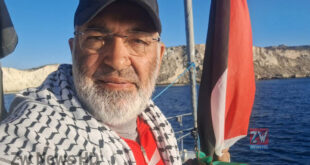Global cooperation used to seem trustworthy, but that’s no longer true. Now, military strength and money are what really count.
By Zeeshan Wali : 25, September 2025
Using force is popular again. Across the world, rules and even the UN are ignored. Military strength, money, and the nerve to use them are what count. Global cooperation is losing respect.
Israel’s actions against Palestinians continue with US support in money, weapons, and blocking UN action. Ukraine and Russia fight on. The US acts as an ally, as seen by the Gulf countries, but its actions are different.
Israeli officials say Washington knew about Israel’s plans to attack Qatar but didn’t warn its wealthy friend.
The West is also divided, with Europe and the US disagreeing on Russia. Western countries that once welcomed immigrants are now filled with anger towards them. Places that used to be melting pots now seem like they could explode.
Countries like Iran, Saudi Arabia, Iraq, Qatar, Egypt, Lebanon, Yemen, Afghanistan, and Pakistan face external threats, mainly from Israel. India, Israel’s closest ally after the US, has long wanted to dominate the region. But in May, India’s plan to use force was strongly defeated when its attack on Pakistan backfired. Pakistan used this opportunity to show its strong defense strategy, unmatched air power, and new cyber warfare abilities.
In June, during Israel’s war against Iran, Pakistan supported Tehran diplomatically, which was appreciated by the Muslim world. The events in May and June showed that military strength is important in global politics and that Pakistan is now a strong military and diplomatic power.
This change is due to Pakistan’s traditional role and the leadership of Field Marshal Asim Munir, who has adopted a strategy of “offensive defense.
” This strategy focuses on strong training, preparation for all threats, and willingness to use force to resolve old disputes. Kashmir and Palestine are top priorities. Pakistan calls for a Palestinian state with pre-1967 borders and Jerusalem as its capital.
The Pakistan Army has also strengthened its partnerships with China, Saudi Arabia, Turkey, Iran, Egypt, and Oman. Relations with the US are improving, and new relationships with Russia and Azerbaijan are forming. Joint training, defense production, and arms exports give Pakistan a global military presence.
Pakistan’s partnerships with the US, China, and Saudi Arabia began with security ties before expanding to economic and diplomatic relations. Pakistan’s security role in the Middle East began in the 1970s. Despite changes, these ties have remained strong. The breakup of Pakistan in 1971, its nuclear program, and its involvement in the Middle East have shaped its role in the region.
This history came full circle on September 19, when Pakistan and Saudi Arabia signed the Strategic Mutual Defence Agreement (SMDA). This agreement states that an attack on one country will be considered an attack on both. This is a major step for Pakistan, restoring its important role in Middle Eastern security.
Qatar, Egypt, and Turkey are considering similar agreements with Pakistan. At the UN General Assembly, Pakistan was invited to a regional security meeting hosted by Qatar, showing how much its role has grown. Saudi Arabia benefits by diversifying its security partnerships and not relying only on the US.
Its partner is now Pakistan, a nuclear-armed country with strong strategic abilities. The SMDA raises questions, such as whether Pakistan will provide nuclear protection to Saudi Arabia. Given Pakistan’s defense strategy and Israel’s actions, this is likely. However, neither country will give a clear answer.
Does this agreement replace US-Saudi defense ties? No, it adds to them, giving Saudi Arabia more options while keeping US support. Could this lead to a regional military alliance with Pakistan at its center? Possibly, given the threats in the region. Did Washington approve? Both Saudi Arabia and Pakistan seem to have informed Washington, Tehran, and Beijing. China’s role will be important, given its strong ties to both Pakistan and Saudi Arabia.
Note: The opinions in this article belong to the writer and may not match Geo.tv’s official views.
 ZW News HD
ZW News HD



